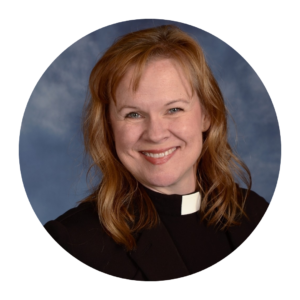Are you a practicing Muslim, Wiccan, Buddhist, Hindu, Jew, or Christian? In our beautiful religious and spiritual diversity, we can all look for the healthiest practices we can find, those that truly nourish and nurture our souls. Last month, I shared five aspects of healthy spirituality and/or religion. No matter your spiritual affiliation, those five aspects will help you find a positive and growth-producing spiritual home.
Now it is time to finish the list of ten with five more aspects of healthy spirituality and/or religion. I have found that these aspects promote psychological and spiritual peace and well-being.

Join our Community of Peaceful Living Wellness Warriors
and receive a special free gift:
Our Top 5 Tips for Peaceful Living
1. LOOK FOR GUIDANCE THROUGH THE INEVITABLES OF LIFE
People around the world go through surprisingly similar life journeys. We all are born in a mother’s womb, then navigate the learning and growth stages of babyhood and childhood. We all must understand other people and our relationships with them.
Most of us at some point leave home on a “hero’s journey” of sorts. Many of us fall in love, maybe marry, and perhaps have children of our own. All of us experience love and loss, celebration and heartache, hunger and satisfaction, faith and doubt, trials and triumphs, overwhelming disappointment and profound joy. Most of us fail and fall in life, overcome, succeed, and possibly fail again. Many of us age, grow grey hair, and grow old. Most of us think about, talk about, and have emotions about the coming of death. Many of us wonder about an afterlife or reincarnation – the journey of the spirit or energy following physical death.
The spiritual traditions speak to all of these things. When people encounter a new, and sometimes confusing, stage of their life’s journey, the spiritual traditions offer stories of people who have gone before them on similar journeys. They lift up ways to understand what is going on in and around a person. They provide meaning, comfort, guidance, and hope through all of these stages. Very pragmatically, a healthy spiritual practice should assist you in understanding and living your one, precious life.
Related Post: SPIRIT AND SOUL: 5 Aspects of Healthy Spirituality
2. LOOK FOR ENCOURAGEMENT TO QUESTION AND DOUBT
If truth is truth, then truth will withstand scrutiny. No religious leader needs to feel threatened by people who question, doubt, or even disagree. When I speak to children during our Sunday morning “Children’s Sermon” times, the children never doubt or disagree with me – at least not out loud in front of the congregation. They simply absorb all I am telling them. They are wise and wonderful in their own ways, but they are not developmentally ready for the mental calisthenics of adult theology.
But adults are ready. I don’t want a church full of adults who only think like a child and take everything I say without analysis. Questions, doubts, and disagreements are how we grow! This does not have to be done disrespectfully. There are always kind ways to ask questions and express disagreements or various perspectives. It is one of my great joys to teach classes where all adults are sharing back and forth, sharpening each others’ thinking, offering new perspectives to the mix, challenging all of us to think further than we have ever thought before.
I am leery of any institution that disallows free thought and free conversation. Look for a place where your authentic thoughts, expressed respectfully, are welcomed. Everyone will grow in the process.
3. LOOK FOR PRACTICES THAT WILL HELP YOU DISCONNECT
It might seem that, in order to be intentionally religious or spiritual, you must pick up every cause, do every good work, and care about every person. This is not the case, especially not at first. All of us go through challenges with our families, friends, work, health, or finances. We all hear the troubles listed in the news, now more than ever, since media is global and immediately available. We are inundated, saturated, and exhausted. As the Zen saying goes, “You cannot fill your cup unless you first empty your cup.”
Much of the “spiritual technologies” offered across the world (e.g. prayers, meditations, rituals, sacred readings, etc.) are not for the purpose of filling us up, but to help us empty all of the bits of information, worries, sadness, overwhelm, anger, anxiety, and stress that are already there. They offer us tools to release resistance, let go of whatever is holding down our spirits, and feel the lightness of unencumbered life.
Only then can we hear the inner guidance to pick up a cause, work, or person. Only then will we not interpret that task as one more thing to add to our overwhelming to-do list. The inner call to love and serve will feel like an exciting opportunity, only after we have first let go of life’s challenges and breathed into a deeper, freer space.
4. LOOK FOR A HELPFUL AND POSITIVE COMMUNITY
There are some who say, “I’m spiritual, but not religious.” Often they mean they prefer to not be part of a spiritual community, as that is what being religious is – being spiritual with other people at least some of the time. If you do choose to be a part of a spiritual/religious community, then look for a helpful and positive one. I have been to religious sites that have gorgeous rituals, music, and architecture, but the people are less than friendly. I have been to other religious sites where the rituals were just “fine”, the music average, and the building looked worn, but the people were loving, welcoming, and helpful. I would choose the latter every time.
The bells and whistles are nice for a field trip to a church, synagogue, mosque, temple, or women’s circle perhaps, but please look for love above all of that. If a place is devoid of love, something is awry. I have been in many churches, synagogues, mosques, temples, and women’s circles where love is obvious. Trust your gut to sense if the community is as healthy as the exterior adornments are pretty. Love, compassion, helpfulness to people in pain, support, affirmation, and care beat out prettiness.
5. LOOK FOR A WAY TO CONNECT TO A HIGHER POWER
Religions have different words and understandings of the Divine, the Holy, the Sacred. You might hear God, Brahman, Buddha-nature, Spirit, Goddess, Tao, Great Spirit, Supreme Being, Source, Allah (which simply means “God” in Arabic), and many others. In Christianity, Jesus is believed to be God incarnate on earth.
In healthy religions and spiritual practices, the point is not to make us into “good” people. That is only one aspect of religion: ethics. Mostly, though, these practices are designed to turn our attention to a higher, deeper, better, richer, truer source of power, creativity, intelligence, love, and wisdom. It is only when we do this that we see we do not have to be perfect all the time. In fact, we can’t. The healthiest sermons and speeches from religious institutions do not tell the people what THEY should do and be. They tell the people what the DIVINE does and is for the people. The people are then the grateful recipients of the Divine’s overwhelming love, mercy, and grace.
The people can then engage with this greater love and power. They can lay down their difficulties and destructive patterns, even their addictions, and receive divine help. We have seen this principle of surrendering one’s life to a higher power work over and over in twelve-step groups. It has also been the teaching of religious philosophies for thousands of years.
I hope this list of five aspects of healthy spiritual and/or religious practices has helped you on your journey. Please do read the first five aspects, published last month. I wish for you an ever-deepening spiritual journey full of love, peace, and joy.
Blessings to you all,
Pastor Stephanie

STEPHANIE LAPE
Stephanie Lape is a pastor in the Evangelical Lutheran Church in America (ELCA).
She holds a Master of Arts degree in Transpersonal Psychology (the psychology of religious experience) from the Institute of Transpersonal Psychology, and a Master of Divinity degree from Luther Seminary. A long-time professor of comparative religions and former campus minister, she now serves as pastor at Eden Lutheran Church in Riverside, California.
Stephanie speaks and teaches on matters of spiritual and psychological development, biblical studies, the enneagram personality tool, and comparative religions. She is an active advocate for interfaith and ecumenical studies. She has taught classes on major religious movements in churches, schools, and city programs, while also leading tours and guest speaking at mosques, synagogues, and temples. Stephanie is honored to be a speaker at the 2021 and 2023 Parliament of the World’s Religions.
She also loves to write. Stephanie is a contributing author for Living Lutheran Magazine and author of Beckoned: Hearing God’s Call to Deeper Faith, which is both a travelogue of her own winding spiritual journey, as well as a guide to help people discover their own path. She lives with her husband and two children in Southern California.



